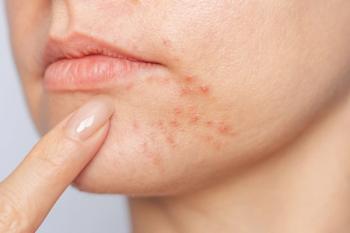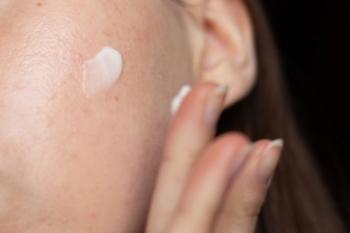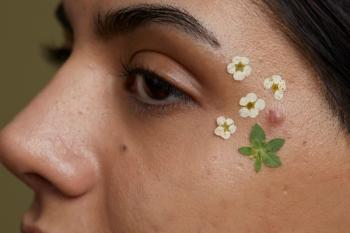
- Dermatology Times, November 2020 (Vol. 41, No. 11)
- Volume 41
- Issue 11
Treatment improves QOL for patients with acne
Quality of life could play role in assessing acne patient care. According to recent study’s results, researchers saw a four-to-five-fold QOL improvement versus baseline over a full treatment course of isotretinoin.
Findings from a recent case series study1 show that on average patients being treated with isotretinoin (Absorica, Sun Pharmaceutical Industries; Amnesteem, Mylan Pharmaceuticals; Claravis, Teva Generics; Myorisan, Akron, Inc.; Zenatane, Reddy’s Laboratories) for moderate-to-severe acne achieve 50% improvement in their quality of life compared to baseline within two months and can expect four-to-five-fold improvement over the full course of treatment.
“Isotretinoin is widely accepted as the most effective treatment for acne. What patients really want to know is how quickly and to what degree are they going to see improvement after starting isotretinoin? We used a validated quality of life measure to better understand this question,” says Aaron M. Secrest, M.D., PhD., vice chair of Business Strategy for Dermatology and an assistant professor in the Departments of Dermatology and Population Health Sciences at the University of Utah.
Dr. Secrest and his fellow investigators designed a longitudinal, retrospective case series study to assess mean Skindex-16 scores over time among patients with moderate-to-severe acne receiving isotretinoin treatment. Skindex-16 data for 57 consecutive patients being treated with isotretinoin were collected at monthly visits and evaluated between November 23, 2016 and January 22, 2019.
Investigators compared continuous variables using quantile regression. Multivariable linear mixed models evaluated mean (95% confidence index (CI)) score trajectory over time. Skindex-16 scores were normalized to a 0-100 scale (0 meaning no effect and 100 meaning maximal effect) for the emotional, symptomatic and functional aspects of having skin disease as well as an overall score, according to the investigators.
Fifty-seven patients (31 [54.4 %] males), with median [interquartile range] age of 17.2 [15.9-18.1] years) in this case series study completed the Skindex-16 at baseline and at least once during follow-up. “Skindex-16 scores were similar by sex but worse with increasing age,” says Dr. Secrest. “Emotional impact was more bothersome to patients with acne requiring isotretinoin treatment than either symptoms or functioning.”
According to the data, improvements in overall and emotional domain scores exceeded 50% by month two of receiving isotretinoin treatment (e.g, overall scores decreased from 39.4 to 17.5 by month two, a decrease of 22.0; P< .001). Qualitatively, Skindex-16 scores reached their lowest point between months three and five; at month 4, overall Skindex-16 scores showed a 4.4-fold improvement (from 39.4 at baseline to 8.9; P< .001).
“In our findings, patients perceived rapid and significant improvements in how acne affects their quality of life, especially emotional improvements,” says Dr. Secrest.
“Acne is a common dermatologic condition and significantly affects psychosocial health and quality of life. An international task force recommended routine use of quality-of-life measures for clinic visits associated with acne management, but this has yet to translate into clinical practice,” adds Dr. Secrest. “This study shows the potential of routine administration of quality-of-life measures to assess patient care in dermatology.”
Disclosure: There are no relevant disclosures.
Reference:
1. Secrest AM, Hopkins ZH, Frost ZE, et al. Quality of Life Assessed Using Skindex-16 Scores Among Patients With Acne Receiving Isotretinoin Treatment. JAMA Dermatol. 2020;156(10):1098–1106. doi:10.1001/jamadermatol.2020.2330
Articles in this issue
about 5 years ago
Mohs micrographic presents challenges in kidsabout 5 years ago
Novel device characterizes mite infestationsabout 5 years ago
Adjunctive examined for facial erythemaabout 5 years ago
Caffeine's role in skincareabout 5 years ago
Strategies for choosing and using neuromodulatorsabout 5 years ago
Robotic-controlled laser advances body contouringabout 5 years ago
Gene expression profile test predicts metastatic riskabout 5 years ago
Smartphone apps not effective in skin cancer riskabout 5 years ago
New vehicles improve tolerability, acceptabilityabout 5 years ago
HIPAA, COVID-19 and jailNewsletter
Like what you’re reading? Subscribe to Dermatology Times for weekly updates on therapies, innovations, and real-world practice tips.











